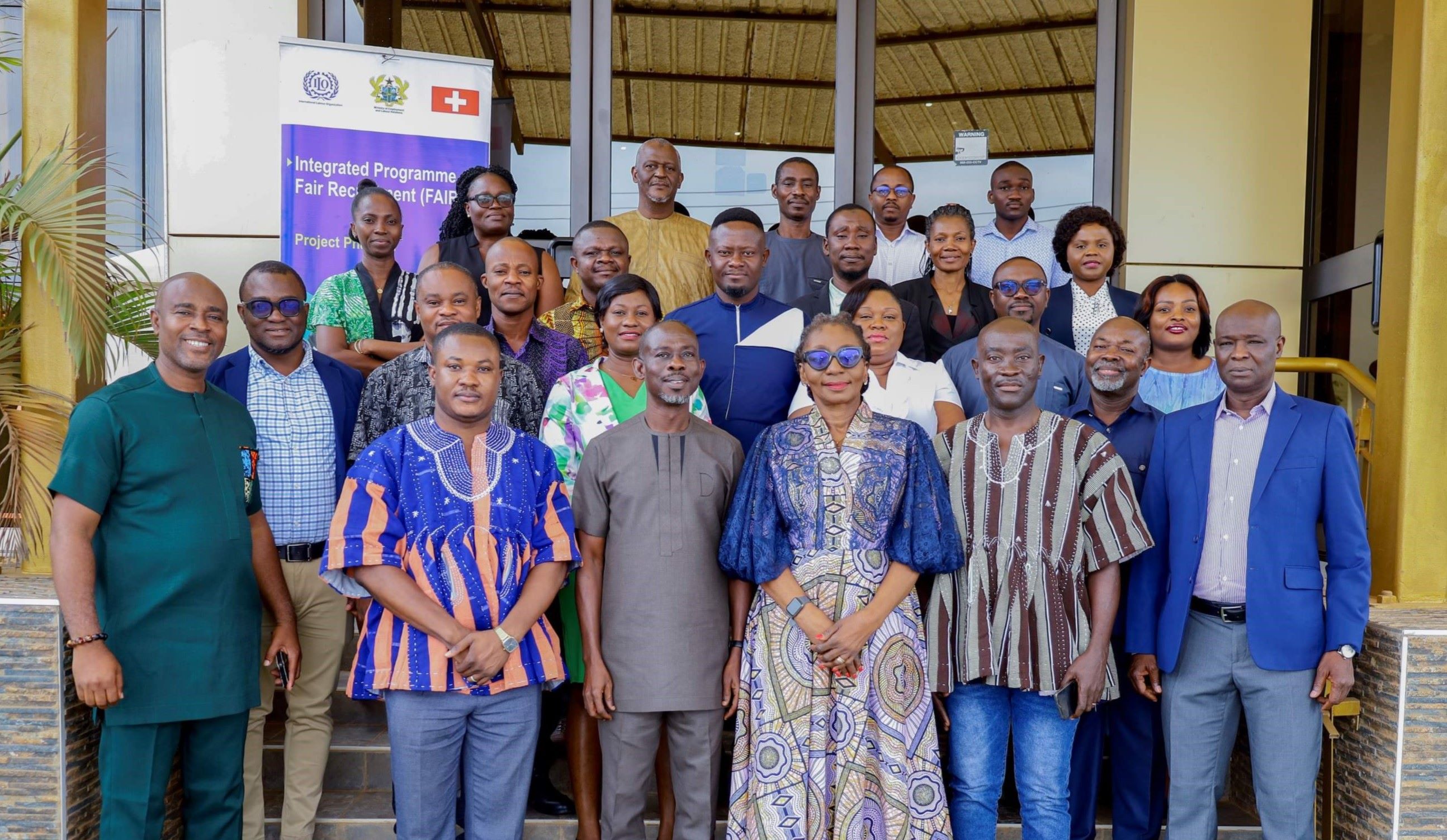National Workshop on the Harmonization of Concepts and Definitions of Labour Migration Statistics in Ghana
Posted at September 4th 2025 12:00 AM | Updated as of September 4th 2025 12:00 AM
Region/Country : Ghana
|Themes : Labour migration, Statistics
A three-day national workshop in Ghana, attended by 32 participants from key institutions such as the GSS, Ministry of Labour, TUC, and GEA, harmonized labour migration statistics. The workshop produced an ILM indicator plan and a roadmap for ILMS, strengthening reliable, comparable data for policy and development.
The Ghana Statistical Service (GSS), in collaboration with the ILO and key national and international partners, successfully convened a workshop on the harmonization of concepts and definitions of labour migration statistics in Ghana. It brought together representatives from government ministries, research institutions, trade unions, employers’ organizations, development partners and civil society to build consensus on how to strengthen the coherence, comparability and reliability of labour migration statistics in Ghana. The workshop was organized under the framework of ILO’s Integrated Programmed of Fair Recruitment Phase III (FAIR III) Ghana Component and supported by the Swiss Development Cooperation (SDC) and The Deutsche Gesellschaft für Internationale Zusammenarbeit (GIZ)
In his welcome address on behalf of the Government Statistician, Dr. Alhassan Idrisu, the Director of Business, Industry and Trade Statistics, Dr. Owusu Kagya, emphasized that Ghana’s development agenda recognises labour migration as a driver of economic revitalisation, job creation and skills development. He noted that reliable and harmonised statistics will therefore be essential for measuring progress and ensuring that labour mobility contributes to a resilient and inclusive labour market. Then, speaking on behalf of the Ministry of Labour, Jobs and Employment, Madam Gloria Bortele Noi, Director of Policy, Planning, Monitoring and Evaluation, stressed that the workshop directly responds to the National Labour Migration Policy of Ghana, which underscores that reliable labour migration data is indispensable for evidence-based planning, monitoring and evaluation.
Kamil Abubakar, National Project Coordinator of the FAIR III component in Ghana, reading a speech on behalf of the Director of the ILO Office for Nigeria, Ghana, Liberia, Sierra Leone and the Liaison Office for ECOWAS, reiterated the central role of data in migration governance. He noted that effective governance of labour migration depends fundamentally on data. Without reliable, comparable and timely statistics, he said, it is difficult to design evidence-based policies, monitor recruitment practices, or uphold national, regional and international commitments (whether under the Sustainable Development Goals, the Global Compact for Migration or the African Union Labour Migration Strategy).
Throughout the sessions, participants engaged in technical working groups to examine international guidelines, national practices and recruitment cost methodologies with the expertise of the lead facilitator, Yacouba Diallo, ILO Senior Specialist for Labour Statistics. They identified gaps in definitions, discussed inconsistencies in data collection, and built consensus on harmonized approaches. Stakeholders, including the Trades Union Congress of Ghana and the Ghana Employers’ Association, expressed strong commitment to supporting the process of harmonizing labour migration statistics and pledged to collaborate in the implementation of outcomes.
At the end of the workshop, participants developed two key outputs: an International Labour Migration (ILM) indicator plan to guide data collection and reporting, and a roadmap for the harmonization of International Labour Migration Statistics (ILMS), which will be validated later this year. These outputs are expected to provide a strong foundation for aligning Ghana’s statistical practices with international standards, while also ensuring that labour migration statistics are responsive to national development priorities.
The initiative marked an important step forward in Ghana’s journey to build a more robust labour migration information system and more reliable and comparable data that will inform policy, safeguard migrant workers, and ensure that migration contributes positively to national development.

